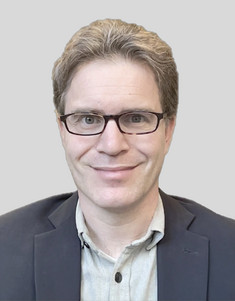Guest professor Ken Kamrin
Granular scaling laws in terramechanics and lunar mobility
This lecture will discuss the basic rheology of dry granular media and discuss methods from the particle-scale to the continuum that can be used to simulate granular flow behaviors in applications, with a special focus on how to use continuum modeling of granular media to predict the behaviors of extraplanetary rovers.
Hybridizing DEM and continuum modeling in granular flow simulation
This lecture will focus on methods to combine the benefits of different modeling approaches for granular media, particularly grain-by-grain methods such as the Discrete Element Method (DEM), and meshfree continuum methods such as the Material Point Method (MPM). Such hybridized approaches offer a potentially expeditious solution to the problem of maintaining efficiency and accuracy in granular flow modeling regardless of the complexity of the geometry or circumstances.
Lecture dates:
23.06.2025 at 2-4 pm, SR-03, Guttenberghaus, Feistmantelstrasse 4, 1180 Vienna
24.06.2025 at 2-4 pm, SR-01, Guttenberghaus, Feistmantelstrasse 4, 1180 Vienna
25.06.2025 at 2-4 pm, SR-01, Guttenberghaus, Feistmantelstrasse 4, 1180 Vienna
26.06.2025 at 2-4 pm, SR-01, Guttenberghaus, Feistmantelstrasse 4, 1180 Vienna
27.06.2025 at 2-4 pm, SR-01, Guttenberghaus, Feistmantelstrasse 4, 1180 Vienna
Professor Ken Kamrin
Ken Kamrin received a BS in Engineering Physics with a minor in Mathematics at UC Berkeley in 2003, and a PhD in Applied Mathematics at MIT in 2008. Kamrin was an NSF Postdoctoral Research Fellow at Harvard University in the School of Engineering and Applied Sciences before joining the Mechanical Engineering faculty at MIT in 2011, where he was appointed the Class of 1956 Career Development Chair and later received a second faculty appointment in Applied Mathematics. After 13 years as a professor at MIT, Ken joined the UC Berkeley Mechanical Engineering faculty in 2024. Kamrin’s research focuses on constitutive modeling and computational mechanics for large deformation processes, with interests spanning elastic and plastic solid modeling, granular mechanics, amorphous solid mechanics, and fluid-structure interaction. Kamrin’s honors include the 2010 Nicholas Metropolis Award from APS, the NSF CAREER Award in 2013, the 2015 Eshelby Mechanics Award for Young Faculty, the 2016 ASME Journal of Applied Mechanics Award, and the 2022 MacVicar Faculty Fellowship from MIT. He sat for three years on the Board of Directors of the Society of Engineering Science and serves as an associate editor for the International Journal of Solids and Structures, Granular Matter, and Computational Particle Mechanics.

